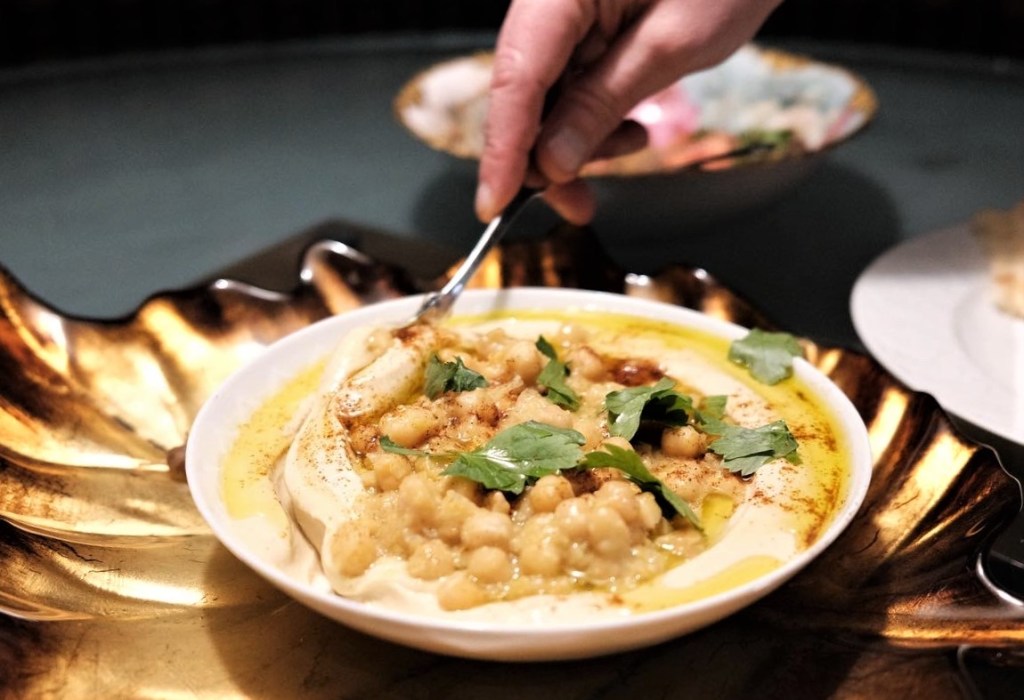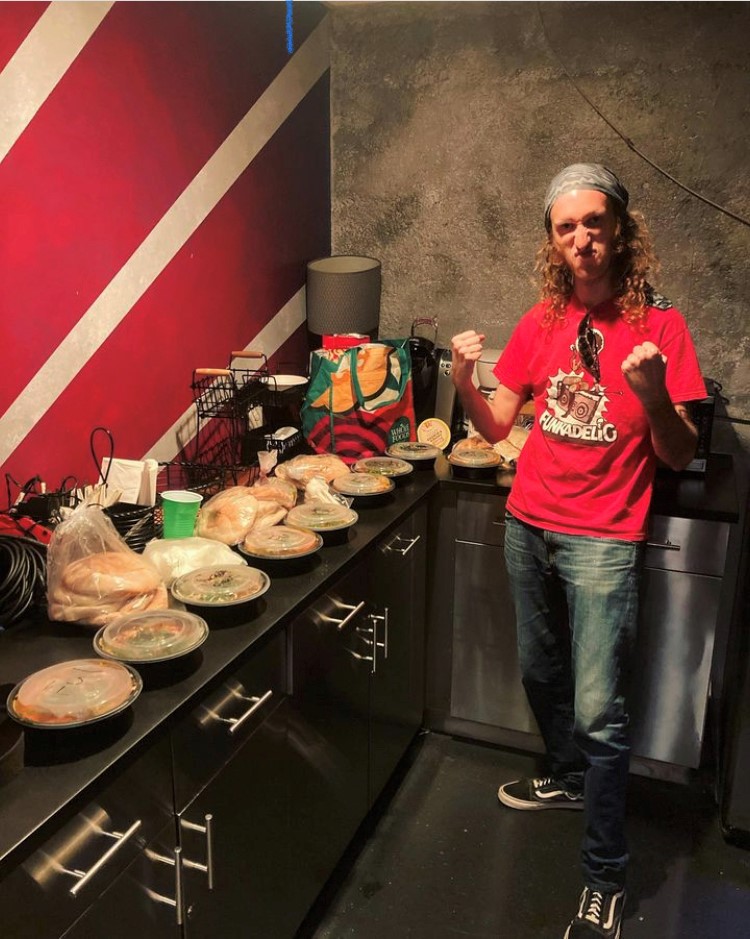Brady Weinstein is on a mission to change how we eat hummus. (Pronounced, he says, with a guttural HOOM-us.) At his semi-weekly popup — a one-man hummus show he calls Hummus Capara — Weinstein will school you on eating hummus warm, as a meal and with a spoon. (Don’t even think about eating it straight from the fridge, with your baby carrots and celery sticks.)
“Most likely, unless you’ve been to the Middle East, you haven’t had hummus like this,” the musician-turned-hummus devotee said. “It’s not the hippie granola hummus you find at your farmers’ market. I’m trying to make it like you’re blindfolded and eating it where it comes from. I always tell people, ‘You’ve just gotta try it, man.’”
Weinstein is quick to point out he’s aware of the almost absurdity of being a white American Jew from Houston, Texas, trying to make the type of hummus you’d eat in the Middle East. And he, too, used to be like us, picking up a refrigerated tub of the creamy blend of pureed chickpeas and tahini at the grocery store and snacking on it with tiny vegetables or — shudder — a bag of pita chips. Then he traveled to Israel, where he had his hummus awakening.
“It just blew my mind,” he said. “It’s so beyond night and day. I came back and couldn’t find it anywhere, so I started teaching myself how to make it.”
In the summer of 2020, the now-Coloradoan Weinstein was furloughed from his nanny gig, with extra time on his hands and a stimulus check burning a hole in his pocket. He took that money to Aurora’s Arash Market, where he stocked up on garbanzo beans, tahini and Middle Eastern pickles. He soaked chickpeas, slow stewed fava beans and pureed to perfection.
And Hummus Capara was born.
He chose the word Capara, a Hebrew term of endearment, as a sort of signal to people from, or very familiar with, the Middle East. Seeing that very specific lingo, they’d know the hummus (again, with that guttural HOOM-us) he was selling was legit.
“Capara is Hebrew slang for like sweetie, but in the Bible it means atonement, or a sacrifice. It’s perfect because I am the hummus sweetie, and believe me, this is a hummus sacrifice. I’ve literally been dating this stuff for three years,” Weinstein said.
Weinstein makes a point of saying that hummus is not an Israeli dish specifically, but is native to the entire Middle East region. Since Israel is the only Middle Eastern country he’s personally traveled to, though, his hummus is modeled after the style he ate there.
And it is beautiful, a hefty vat of the creamy stuff topped with whole, nutty chickpeas, parsley leaves, paprika, sumac and olive oil. It is definitely best served warm, scooped onto the accompanying pita Weinstein sources from Shahrazad Bakery. (Or, yes, eaten with a spoon. This is, figuratively speaking, fork and knife hummus.) Top it with a dot of super spicy zhug (like a fiery chimichurri sauce) to cut the richness.
While he always has the standard hummus on his menu, he also plays around with different toppings for his Friday curbside pick-ups, near his home in the DU neighborhood. Examples include lion’s mane mushrooms, fried eggplant and/or pomegranate seeds. (Tuesday pick-ups are at a rotating roster of breweries like Novel Strand, Ratio Beerworks and Cohesion Beer Co.)
Like any great magician, this hummus wizard doesn’t want to reveal his secrets, but he says the key to making real Middle Eastern-style hummus is in two things: the quality of the tahini, and the treatment of the chickpeas. The latter you must soak and coddle, gently coaxing out their nutty flavors. Whatever pampering, massage or fondling he’s doing to them, the result is silky and rich, like eating a Sade song.
Brady Weinstein may be a little eccentric in his hummus fanaticism, but if that eccentricity gets you to put down that cold, grocery store hummus tub — or rather a guttural HOOM-us, because we know better now, right? — he’s fulfilled his mission.
Subscribe to our new food newsletter, Stuffed, to get Denver food and drink news sent straight to your inbox.
Source: Read Full Article







